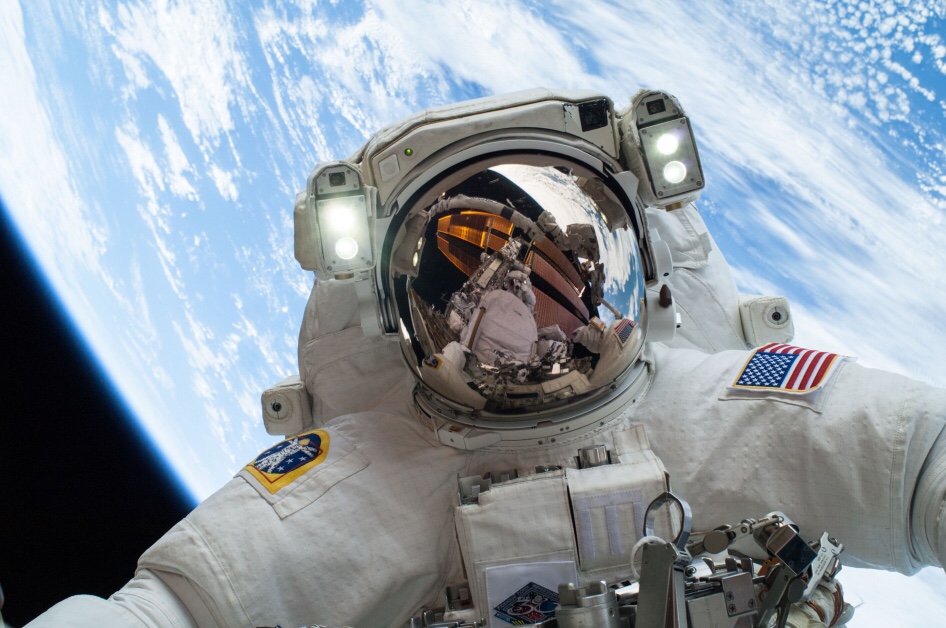The New Inquiry's publication of an essay by Sam Kriss called the “Manifesto the Committee to Abolish Outer Space” really caused something click into place. I'd been thinking about the way that science uses concepts from romantic poetry to create enthusiasm and “buy-in” for its mission. When scientists use words like “beauty” and “awe” to describe natural phenomena they borrow from the romantic poets. The “love” of science is not at all scientific. There is no scientific theory of beauty; even scientists would acknowledge, it's not a proper subject for scientific inquiry.
Here's Kriss on what it means to abolish outer space.
We said earlier that for us to abolish something does not mean to destroy it. Once the cosmos was thought to be painted on the veil of the firmament, or to be some kind of divine metaphor, a flatness inscribed with thousands of meaningful stories. Since then it’s become outer space, a grotesque emptiness. Space is a site of desecration, an emptiness in which one moves, and moving into space means closing down any chances for Earth. C.A.O.S. is not interested in setting up limits. We want to create a future, not one of tin cans dodging rocks in a void, but a future for human life. To do this we must abolish outer space with all its death and idiocy, and return the cosmos to its proper domain, which is mythology, so that when we look up it will be in fear and wonder, and the knowledge that we live in a world that is not possible.
Sam Kriss makes clear that we've traded one mythology for another, but this new mythology is stamped with the imprimatur of science. Our new mythology equates outer space with adventure, bravery, ultimate knowledge, beautiful images of nebula and galaxies, and a vast new frontier for human exploration (and exploitation). In the back of our minds, we hold the possibility we may need a new planet if things go too off the rails on this one. Outer space is the source of a “reset button” for human-habitable planets.
The reality of direct human contact with outer space is instant death. Despite what you may have been told, outer space doesn't want us. Human bodies evolved on this planet with its atmosphere, rhythms of day and night, its particular gravity, and the many plants, animals and our other co-habitants. To survive in outer space we must replicate a minimum set of earth's qualities that have a necessary relationship to human life. Outside of normal earth gravity, we eventually turn into gelatin. Up and down, heads and feet, opposable thumbs, and the consumption of food, these are concepts that have no purchase in the vast expanses of space.
The beauty of outer space is created in post-production. It's like an using an Instagram filter to make your life look more interesting. For instance, the Hubble Space Telescope doesn't use color film–or any film at all. The distant light is recorded in shades of black and white. The color is a educational and promotional tool, not a direct perception of an object. Here's what hubblesite.org has to say about their use of color and seeing things that can't actually be seen by humans.
The colors in Hubble images which are assigned for various reasons, aren't always what we'd see if we were able to visit the imagined objects in a spacecraft. We often use color as a tool, whether it is to enhance an object's detail or to visualize what ordinarily could never be seen by the human eye.
Our idea of outer space is that it's over there–far away. We imagine ourselves to be Joseph Banks, Mungo Park, Charles Darwin or Dr. Livingstone in search of the undiscovered territory. For the most part, outer space is empty. There's nothing to discover. It's even emptier than “flyover country.” As Kriss notes in his manifesto, we lose nothing when we abolish outer space because “there's nothing there already.” Astronomers recently issued a report saying that based on data from the Kepler spacecraft their could be as many as 8.8 billion earth-sized planets capable of supporting life. What they neglected to say was that no human from planet earth will ever set foot on any of the those planets. While our imagination is infinite, our physical manifestation in space-time is nothing but finitude. Just like producing images of astral objects that can't actually be seen by humans, we create a catalog of planets, obscure unattainable objects of desire.
And while scientism ridicules the cosmology of others, it is still geocentric at the bottom of its thinking. We are already in outer space. Earth itself isn't outside of the universe. We are spinning, orbiting and hurtling through outer space. I already live in outer space.

